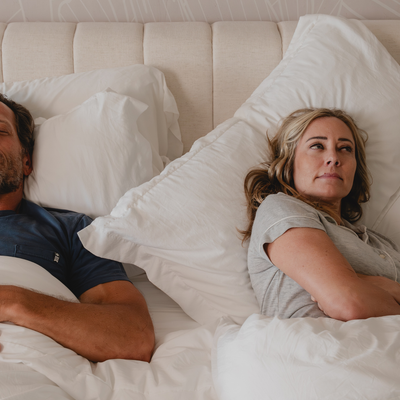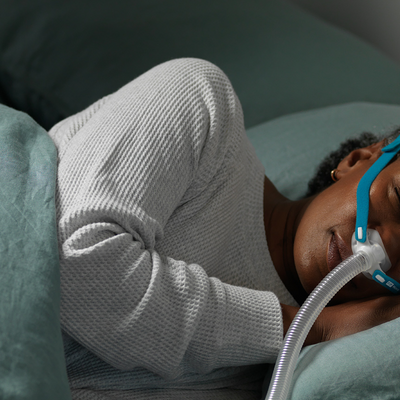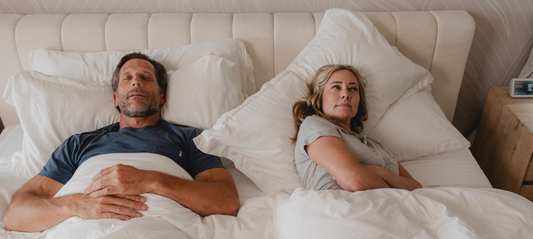The severity of your sleep apnea can be influenced by a range of lifestyle factors, including what you eat. While CPAP therapy remains the gold standard for treatment, emerging research shows that diet plays a significant role in both the severity and management of sleep apnea symptoms Let’s break down the science behind the diet and explore which foods may worsen your symptoms, while highlighting what to eat to support better sleep and respiratory health.
The Link Between Diet and Sleep Apnea
Sleep apnea is a condition where the airway collapses or becomes blocked during sleep, causing repeated breathing interruptions. These episodes reduce oxygen intake, disrupt sleep, and put a strain on your heart. Over time, untreated sleep apnea is associated with higher risks of diseases like hypertension, stroke, and Type 2 diabetes. But how does food come into the picture?
1. Weight Gain & Inflammation
Excess weight, especially around the neck and abdomen, is one of the most significant risk factors for sleep apnea. Fat puts weight on your airway, increasing the likelihood of irregular breathing at night. Diets high in processed foods, sugar, and saturated fat are known to contribute to both weight gain and systemic inflammation, two drivers of sleep apnea severity.
2. Hormonal Disruption
Poor eating habits can also affect hormones that regulate sleep and appetite, including melatonin, leptin, and ghrelin. A disrupted circadian rhythm combined with sleep deprivation often leads to increased cravings and late-night eating, creating a cycle that worsens both sleep and metabolic health.
Foods To Avoid If You Have Sleep Apnea
Certain foods can worsen sleep apnea symptoms by promoting inflammation, increasing your mucus production, and causing acid reflux, all of which affect breathing during sleep.
1. High-Fat Dairy
Full-fat cheese, milk, and ice cream can increase mucus buildup in the throat and nasal passages. This added congestion can make it harder for people with sleep apnea to breathe. Some studies also suggest that dairy may trigger inflammation in sensitive individuals.
2. Processed Meats
Bacon, sausages, and deli meats are high in saturated fat and sodium, which contribute to both weight gain and fluid retention.
3. Alcohol
While alcohol may initially make you drowsy, it actually relaxes the muscles of the throat and reduces your body’s ability to wake itself up during an apnea event. It’s one of the most common and well-documented dietary triggers for sleep apnea episodes.
4. Refined Carbohydrates & Sugary Foods
Pastries, white bread, and soda can spike blood sugar and insulin levels, which can lead to increased fat storage and inflammation. High sugar intake has also been associated with poor sleep quality and higher rates of apnea in both adults and children.
5. Acidic or Spicy Foods (Before Bed)
Foods that trigger acid reflux, such as tomatoes, citrus, or spicy dishes, can worsen apnea symptoms at night by allowing stomach acid to reach the throat and irritate the throat. Gastroesophageal reflux disease (GERD) is common among people with sleep apnea and often underdiagnosed.
Foods That May Help With Sleep Apnea
Thankfully, there are plenty of foods and nutrients that have been shown to support better sleep, reduce inflammation, and even help manage weight, all factors that contribute to fewer apnea episodes and better overall health.
1. Leafy Greens and Fiber-Rich Vegetables
Spinach, kale, and broccoli provide antioxidants and anti-inflammatory compounds that may reduce oxidative stress in the airway. Fiber also helps regulate blood sugar and promotes satiety, which supports a healthy weight.
2. Omega-3 Fatty Acids
Found in fatty fish like salmon and sardines, omega-3s have anti-inflammatory effects and may help protect against cardiovascular complications linked to sleep apnea. One study by Oxford University even found that higher omega-3 intake correlated with improved oxygen saturation during sleep.
3. Magnesium-Rich Foods
Magnesium supports healthy muscle function and can promote deeper, more restful sleep. Foods like almonds, black beans, and whole grains are excellent sources. Research suggests magnesium supplementation may also benefit people with insomnia or poor sleep efficiency.
4. Fruits High in Melatonin
Cherries, bananas, and kiwi contain natural melatonin or compounds that support its production. Incorporating these fruits into your evening routine may help you fall asleep faster and deeper.
5. Herbal Teas & Hydration
Hydration is super important! Dry airways are more prone to irritation and snoring. Warm, non-caffeinated herbal teas (like chamomile or ginger) can soothe your throat, improve digestion, and help you wind down before bed.
Bonus Tip: Meal Timing Matters
It’s not just what you eat, but when. Late-night eating, especially heavy, high-fat meals, can lead to indigestion and acid reflux. Try to stop eating at least 2–3 hours before bed to give your body time to digest and reduce the chance of airway irritation.
Improve Your Sleep Apnea With a Whole-Body Strategy
Improving your diet won’t replace medical treatment for sleep apnea, but it can help improve the results of your therapy, improve energy levels, and lower the risk of associated health conditions. A balanced, anti-inflammatory diet, combined with proper CPAP use, has the potential to drastically improve the quality of life for many patients.
And if you haven’t been diagnosed yet but suspect you might have sleep apnea (frequent snoring, daytime fatigue, and trouble staying asleep are all red flags) — don’t wait.
Take the First Step: Get Tested From Home with Lofta
Lofta makes it simple to get tested for sleep apnea from the comfort of your own home. Our at-home sleep test is clinically backed, easy to use, and reviewed by board-certified sleep physicians.
Click here to order your at-home sleep test today.










































